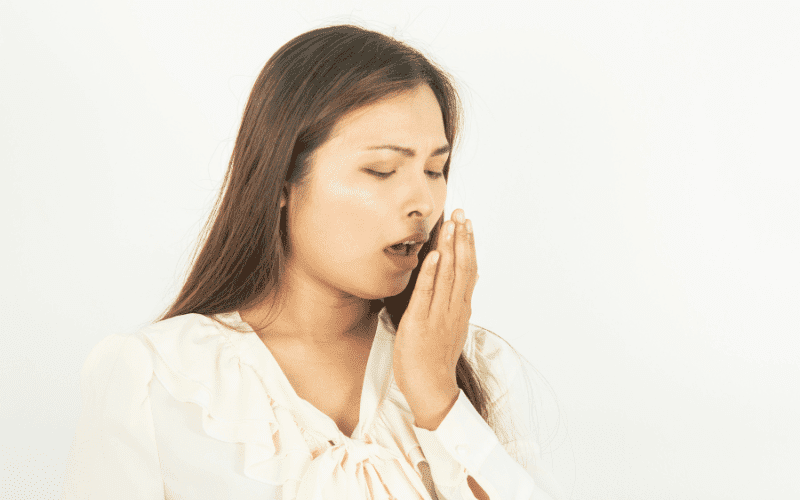ONLINE SCHEDULING AND VIRTUAL CONSULTS AVAILABLE

What Are the Signs of Bad Breath and How Can You Treat It?

Bad breath, or halitosis, affects many people and can be a real confidence killer. Imagine leaning in for a conversation or a kiss and worrying about your breath. It’s more common than you think, and recognizing the signs is the first step to tackling the problem.
In this blog, we will dive into the common signs of bad breath, uncovering why it happens and how you can treat it effectively. From simple home remedies to professional treatments, we’ve got you covered. Understanding and addressing the root causes of bad breath can lead to fresher breath and improved overall oral health.
Let’s explore how you can confidently banish bad breath from your life.
Common Signs of Bad Breath
Recognizing the signs of bad breath is essential. One of the most obvious signs is a persistent unpleasant odor coming from your mouth. If you notice people stepping back when you talk or offering you mints frequently, it might be a hint. Other signs include:
- Bad taste: A bad taste in your mouth that doesn’t go away even after brushing and flossing.
- Dry mouth: If your mouth feels sticky or dry, it might be a sign of bad breath due to a reduction in saliva.
- Feedback from others: Sometimes, the person with bad breath is the last to know. You can ask a trusted friend or family member for their honest opinion.
Causes of Bad Breath
Several factors contribute to bad breath. Here are the most common ones:
- Poor oral hygiene: Not brushing and flossing regularly leaves food particles in your mouth, leading to bacterial growth.
- Certain foods: Garlic, onions, and spices can cause bad breath by entering your bloodstream, traveling to your lungs, and affecting your breath.
- Tobacco products: Smoking or chewing tobacco causes bad breath and increases the risk of gum disease.
- Medical conditions: Infections, diabetes, and liver problems can lead to halitosis.
Home Remedies for Fresher Breath
You can start with simple home remedies to tackle bad breath:
- Brush and floss regularly: Brushing your teeth at least twice a day and flossing daily can make a significant difference. Don’t forget to brush your tongue.
- Stay hydrated: Drinking plenty of water keeps your mouth moist and washes away food particles and bacteria.
- Chew sugarless gum: Chewing stimulates saliva production, which helps neutralize acids and remove food particles.
- Use herbal remedies: Chewing parsley, mint, or fennel seeds can naturally freshen your breath.
- Rinse your mouth: Regularly rinsing with water or a mouthwash after meals can help remove food debris and reduce bad breath.
Professional Treatments for Bad Breath
If home remedies don’t work, consider professional treatments. Your dentist can provide a thorough cleaning to remove plaque and tartar buildup, which often cause bad breath. Regular dental check-ups are crucial in identifying and treating any oral health issues. If bad breath persists, it might be time to look for a dentist near me on the Internet to find a local dentist near you and get professional help.
- Specialized products: Your dentist may recommend specialized mouth rinses or toothpaste to target bacteria and improve your oral hygiene routine.
- Treating underlying issues: In some cases, treatment for gum disease or other dental problems might be necessary to eliminate bad breath.
Lifestyle Changes for Better Breath
Making certain lifestyle changes can also help combat bad breath:
- Avoid tobacco products: Tobacco contributes to bad breath and other serious health issues.
- Limit certain foods: Reducing intake of foods like garlic and onions can make a noticeable difference.
- Eat a balanced diet: A diet rich in fruits and vegetables helps keep your mouth hydrated and stimulates saliva production.
- Reduce alcohol consumption: Alcohol can dry out your mouth and worsen bad breath.
Incorporating these changes into your daily routine supports better oral health and fresher breath.
The Role of Regular Dental Visits
Regular dental visits play a vital role in maintaining fresh breath and overall oral health. Your dentist can identify and treat problems that cause bad breath, such as cavities, gum disease, and infections. Scheduling regular check-ups and cleanings ensures that any issues are addressed promptly.
- Personalized advice: Discuss your concerns with your dentist Plantation during your visits. They can provide personalized advice and recommend specific products to help you maintain fresh breath.
Bad breath can be an embarrassing issue, but understanding its signs and causes empowers you to take control. Start with good oral hygiene and lifestyle changes to tackle the problem. If home remedies aren’t enough, consult a dental professional for a thorough evaluation and personalized treatment. Regular dental visits can help you maintain fresh breath and overall oral health. Don’t let bad breath hold you back—take action and enjoy a confident, fresh smile.




